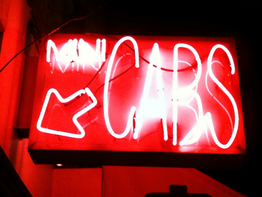 Image: Ged Carroll
Image: Ged Carroll But does it matter if a campaign is a bit naff if the message is valid? Is the message of the #GetHomeSafeSelfie a good, positive one? Well, were it a #TakeYourMakeUpOffBeforeBed selfie or #BrushedTeeth selfie concerning people returning home too drunk to care about personal hygiene I might feel more engaged. It's something that makes you feel better, good for your skin/oral health and if you have drunk too much then to wake up freshfaced and breathed helps your hangover come morning.
| Think I've taken this to a rather frivolous place? My point is that personal hygiene is something a woman can control. The young woman that TfL no doubt spent hours of meetings on designing mind maps and profiles about can decide whether or not she falls into bed once home still caked in make up, or gives her face a wipe before sleep. She can't decide whether or not she gets home safe. | anybody who has taken a night bus knows they can be intimidating |
Twitter users have pointed out that this campaign falls into the victim blaming camp. Others have suggested that sharing a photo of yourself and announcing that you are possibly drunk and definitely home might cause the very people they are intending to thwart to exploit the GPS on phones. Or of course simply alert people they know to choose to come over and exploit the situation.
If you can't launch a campaign aimed at telling men not to sexually assault women who put them in a position of trust - #ChoseNotToRape selfie campaign anyone? Then a far better campaign would be to focus on making people feel safer on public transport. Don't shout, don't get aggressive, look out for others who are being intimidated when clearly trying to just get home.
Put the onus on the general public, not the victim. Safety is a concern for us all and we can choose to make our environment safer by intervening, not by victim blaming.
Squeamish Kate


 RSS Feed
RSS Feed
